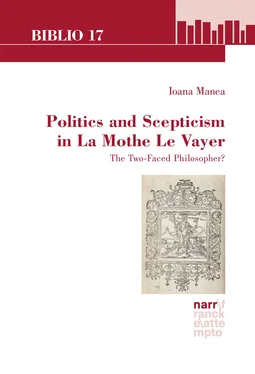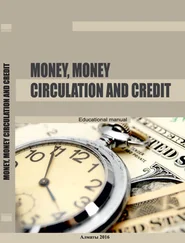And relying on the fantasy of much more order that it [nature] can presumably observe, although it is everywhere very ordered, we search for mathematical certainties and unchanging regularities in the material things, which only exist in those that are delivered from all matter, like the first of all the dogmatic philosophers is forced to acknowledge in the last chapter of the second book of the Metaphysics.
Et sur l’imagination de beaucoup plus d’ordre qu’elle n’en veut vraisemblablement observer, encore qu’elle soit très ordonnée partout, nous cherchons des certitudes mathématiques, et des régularités invariables aux choses matérielles, qui ne se trouvent jamais qu’en celles qui sont délivrées de toute matière, comme le premier de tous les dogmatiques est contraint de l’avouer au dernier chapitre du second livre de sa Métaphysique.16
Without being necessarily unfamiliar to organisation, the variety that characterises the world is nevertheless irreducible to the order to which humankind’s mathematical theories aim at submitting it. Besides that, Aristotle, the dogmatic philosopher par excellence, who although exposed to the strong opposition of the innovators admired by La Mothe Le Vayer, still exerted a considerable authority over the philosophy of the time, admitted that a philosophy seeking to account for the world through mathematics would be inefficient because of its dogmatism. The passage that La Mothe Le Vayer uses for proving the discrepancy between the rigour of mathematics and the physical world is also the one he uses, as we will see further on, for justifying the existence of political science.17
In the attack he launches against mathematics, La Mothe Le Vayer does not target its capacity to make natural phenomena understandable to a certain extent, but the arrogance of the dogmatic philosophy, which transforms it into a system that pretends to be able to explain the universe’s deepest secrets. By using abstract principles like those of mathematics, which are more related to intellectual invention than to the material world, philosophers try to impose on the universe a regularity that is foreign to it: “After having established certain rules that are more subtle than real, we want all its [nature’s] operations to come down to them, as if it would be impossible for it to exceed the boundaries that our mind has prescribed upon it” (“Après avoir établi de certaines maximes plus subtiles que réelles, nous voulons que toutes ses opérations s’y rapportent, comme s’il lui était impossible de passer les bornes que notre esprit lui a prescrites”).18 The uniformity of the rules on which they base their theories does not allow philosophers to really clarify the functioning of the universe, but to give it a simplified explanation, which can be grasped by the human mind. As soon as they pretend to have reached results that are likely to allow them to make the world comprehensible, they are seized by an arrogance that stops them from acknowledging the existence of natural phenomena to which their systems cannot be applied. Therefore, instead of admitting their ignorance, they prefer to describe as monstrous the cases that remain untranslatable through the terms of their theories.
Without doubt, the beings which are treated as monsters are “against the order of nature”,19 but the order of nature that emerges from the principles invented by humankind. The rigidity of thought that results from arrogance is likely to encourage the individuals it dominates to depreciate phenomena whose conformity with nature they ignore: “Indeed we overestimate our knowledge and I am not at all beyond the suspicion that it is some sort of impiety to want to fix the same boundaries to the works of God and of nature that they have imposed on our knowledge” (“En vérité nous présumons trop de notre savoir, et je ne suis pas même hors de soupçon que ce ne soit quelque sorte d’impiété, de vouloir établir les mêmes bornes aux œuvres de Dieu et de la nature, qu’ils ont données à notre connaissance”).20
Philosophers’ incapacity to understand the world is not visible only at a practical level, like in the case of monsters, but also at a theoretical level. In the view of La Mothe Le Vayer, the philosophical systems that claim to clarify the structure and the functioning of nature are discredited by the fierce disagreements which oppose them to one another:
The principles of this natural science, its elements and everything that depends on it are differently considered by the ones than by the others; and the different sects of philosophers have fought more battles, with more violence and stubbornness about everything that concerns the world and its organisation; than all the conquerors have done in order to become its masters.
Les principes de cette science naturelle, ses éléments, et tout ce qui en dépend, sont autrement envisagés par les uns que par les autres ; et les sectes différentes des philosophes ont donné plus de combats, et avec plus de violence et plus d’opiniâtreté, sur tout ce qui concerne le monde, et sa constitution ; que tous les conquérants n’ont fait pour s’en rendre les maîtres.21
The polemics between the different philosophical systems are the obvious proof of the oppositions that separate them. The battles fought in the field of philosophy are inflamed by the pride that prompts philosophers to impose themselves to the detriment of their adversaries. Similarly to the war leaders who try to take hold of the physical world, the followers of the different philosophical trends aim at dominating the world of ideas. However, according to our author, philosophical quarrels are far from allowing their participants to show that they managed to clarify the questions that they debate. The absence of any consensus about the so-called science of nature compromises the pretentions to possess the absolute truth that are voiced by all the philosophical theories.22
Although they are sharpened by the philosophers’ pride, the contradictions that divide the philosophical schools and that materialise in intense quarrels are far from being the consequence of a mere misunderstanding. In this respect, La Mothe Le Vayer does not ignore the tendency that aims at downplaying the dissensions between the different philosophical trends by restricting them especially to the level of language: “I am well aware of the desire to reconcile all these party leaders and to prove that their terms and ways of speaking, as dissimilar as they seem, may mean the same thing in a favourable interpretation” (“Je sais bien qu’on a voulu concilier tous ces chefs de parti, et prouver, que leurs termes et leurs façons de parler, pour dissemblables qu’elles paraissent, peuvent signifier une même chose avec une favorable interprétation”).23 In the view of La Mothe Le Vayer, to think that the conflict among the philosophical schools could be solved by the clarification of the terms that they use would be nothing else than a strategy to “deceive oneself” (“se tromper soi-même”).24 The contradictions among the philosophical trends are unquestionable and demonstrate humankind’s incapacity to make out the giant show that is the world.
1.4 Fervent Admirer of Sextus Empiricus’ “Decalogue”
Within the works of La Mothe Le Vayer, the use of contradictions is not limited to the cases that reveal the failure of the different philosophical schools to decipher the world. The contradictions are constantly present in the writings of La Mothe Le Vayer and result from the application of Sextus Empiricus’ ten sceptical tropes. The almost religious importance that the author attributes to these tropes, by calling them “our Decalogue”,1 does not come from their connection with some kind of transcendental reality, but from their capacity to contribute to the accomplishment of the life of the philosophers who practise them. Drawing inspiration from Sextus’ Adversos mathematicos , the writer interpretes in sceptical terms the emphasis laid by the ancient philosophy on the eudaimonia as the final goal ( telos ) of human action and holds that the tranquillity of mind, the purpose of genuine philosophers, can only be provided by a Pyrrhonism underlied by the ten tropes.2
Читать дальше












